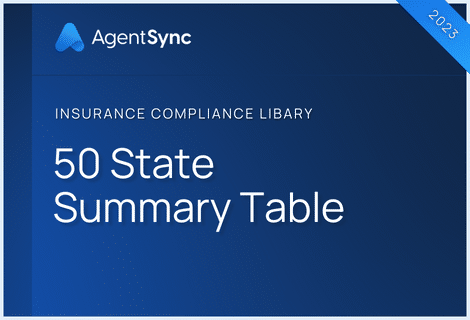

Answering client questions is key to building trust and strengthening relationships. Many insurance consumers view their agent as the expert when it comes to managing their risk. If you’ve been working as an insurance agent long enough, you’ve likely already established yourself as knowledgeable, reliable, and trustworthy in the eyes of your clients. Building trust with consumers takes time and effort, but it’s critical to creating lasting relationships and increasing your client retention.
Once your clients trust you enough to be an expert on their specific insurance needs, they’ll feel more comfortable asking you questions that go beyond price and policy details. Offering advice or recommendations to your clients to help them better manage their risk is all part of the job, but be careful not to answer any questions that fall outside your wheelhouse. Specifically, any questions that you aren’t actually licensed to answer – like those involving securities.
Securities require additional licensure
Some insurance products, like variable life insurance and variable annuities, are classified as securities because of their ties to market fluctuations. These products, which are typically leveraged by investors as they plan for retirement, are more complicated and involve an additional level of regulatory oversight and licensure.
Selling these products without completing the necessary steps to become licensed can open insurance agents up to regulatory action like fines, suspension, and in severe cases, jail time. But did you know you can face the same consequences simply by answering securities-related questions without the correct license?
5 questions that an insurance agent should NEVER answer without a securities license.
1. Should I purchase a variable annuity?
Insurance agents can tell their clients whether purchasing flood insurance is a good idea or not based on the location of their property. They can advise business owners on the correct amount of liability insurance to protect their company from costly lawsuits. What they can’t do (at least without the proper license) is recommend whether their client should purchase securities-based products, like variable annuities.
2. Will purchasing variable life insurance help me meet my long-term financial goals?
When it comes to helping clients with their financial goals, the best an insurance agent can do is help their client shop around for the most competitive price on their policy. Suggesting a client invest in any security-based product, like variable life insurance, to set themselves up better for retirement is a big no-no for any insurance agent who doesn’t hold a securities license.
3. What are the benefits of a variable annuity vs. a registered index-linked annuity?
You may be thinking that discussing the value of different securities products is A-OK since you’re not technically making any recommendations, but you’re still walking a thin line. Offering information about the benefits of certain products could come across as offering investment advice which could land an agent with no securities license in hot water with the SEC.
4. Based on current market trends, is now a good time to invest?
Whether or not an agent feels knowledgeable enough on current market trends to answer a question like this, they should never try to persuade a client to invest in securities, or, indeed, to not invest. If you offer a recommendation that leads to an investment, and then the market plummets, an angry client might place the blame on you. Good luck winning that lawsuit without a license to advise and sell securities.
5. What are the specific risks associated with variable annuities?
You’re an insurance agent; risk management is the name of your game! Surely you can offer clients information on the risks associated with purchasing a variable annuity. Not so fast. Just like telling your clients about the benefits of investing in securities, talking about the drawbacks of these products could be seen as offering advice on whether or not to invest. And we’ve already established that offering any kind of investment advice without the correct license is off the table.
What happens if you answer securities questions without the right license?
Giving out advice about securities can have negative effects on both the un-licensed agent and the client. First off, since these investments deal with people’s life savings, one mistake based on bad advice can deal a pretty heavy blow to an individual’s retirement plans. A once-happy client isn’t going to be so satisfied when they’ve followed your advice only to end up in financial ruin. And without the proper securities license, you won’t have a leg to stand on if that client decides to sue.
Even if your advice fairs well for your clients, you still risk getting caught doing something that you aren’t actually licensed to do. Breaking the law in this way could put you at risk for fines, suspension, license revocation, or, in extreme circumstances, criminal charges.
If you want to advise on securities products, just get licensed!
While the specifics of what you can and can’t say without a license gets a little murky, the bottom line is that there are many good reasons to get a securities license. If you’re an insurance agent who wants to sell securities or offer financial advice to your clients, your first step should be obtaining the appropriate securities license.
When it comes to securities like variable lines policies, clearly things can get a little complicated. If you’re tasked with managing insurance producers with securities licenses, you know that staying up to date with licensing requirements to stay compliant may not be easy, but it’s necessary.
AgentSync Manage offers enhanced variable insurance support that unifies FINRA and NIPR data into a single profile, providing a consolidated view of broker eligibility for informed decision-making, accelerated onboarding, and compliance.
If you’re ready to take control of your variable lines broker compliance, book a demo and see what AgentSync can do for you.

